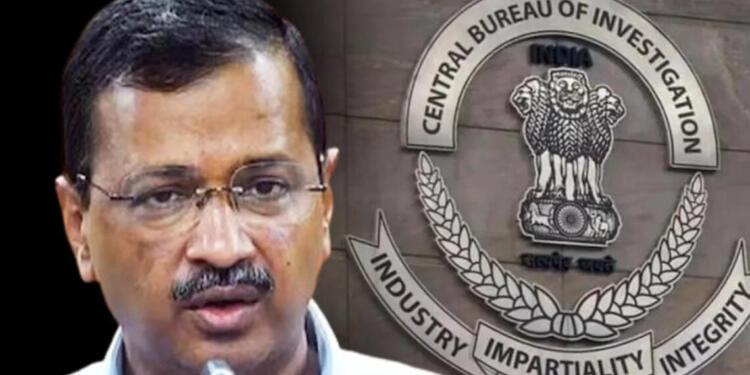Delhi Chief Minister Arvind Kejriwal’s troubles do not seem to be ending. On Wednesday, June 26, the leader of the Aam Aadmi Party (AAP) was arrested by the Central Bureau of Investigation (CBI) from Delhi’s Rouse Avenue Court. This arrest was made in connection with the alleged liquor policy case, and now the agency has sought five days of custody.
The CBI had questioned Kejriwal in Tihar Jail on the evening of June 25 and recorded his statement in this matter. After his arrest, his wife Sunita Kejriwal alleged that the entire system is trying to ensure that her husband cannot get out of jail, calling it “dictatorship” and “emergency.”
In a post on X, she said, “On June 20, he was granted bail, but the Enforcement Directorate (ED) immediately stayed it. The next day, the CBI made him an accused and today arrested him. The entire system is trying to ensure that this man does not get out of jail. This is not law, this is dictatorship, this is emergency.”
What is the case? What is the difference between ED and CBI cases?
Delhi Liquor Policy Case
The arrest of Arvind Kejriwal by the CBI on June 26 is related to the Delhi Liquor Policy 2021. Earlier, the Enforcement Directorate (ED) had arrested him in a money laundering case and kept him in Tihar Jail. But what exactly is the Delhi Liquor Policy case?
In November 2021, the Delhi government led by Arvind Kejriwal introduced a new liquor policy to modernize the sale of alcohol in the city. However, this move received mixed reactions, including concerns over financial and public health impacts.
Subsequently, in July 2022, Delhi Chief Secretary Naresh Kumar reported violations in the policy to Lieutenant Governor (L-G) Vinai Kumar Saxena, who recommended an investigation by the Central Bureau of Investigation (CBI). The report alleged that this policy caused a “financial loss” exceeding Rs 580 crore. Consequently, the liquor policy was scrapped in July 2022.
Differences between ED and CBI cases
There are differences between the ED and CBI cases in the liquor policy matter. The CBI’s investigation is related to alleged irregularities in the formulation and implementation of the policy. The central agency alleges that irregularities were made in the liquor policy, undue benefits were given to licensees, license fees were waived/reduced, L-1 licenses were extended without approval, etc.
On the other hand, the ED alleges that this scam was to give wholesale liquor trade to private entities and to set a 12 percent margin, which included a 6 percent commission. In its first prosecution complaint in November 2021, the ED said that the policy was “deliberately designed with flaws” that promoted “cartel formation through the back door” to benefit AAP leaders.
In May, the ED’s supplementary chargesheet named Kejriwal and AAP as accused in this case. The chargesheet mentioned that money was routed to AAP through “hawala” channels. It also found chats between Kejriwal and “hawala” operators.
CBI’s stance
CBI officials arrested Kejriwal from the Rouse Avenue Court premises. CBI Special Public Prosecutor D.P. Singh said, “We could have taken this action before the election, but we did not. It only happened when he returned at the end of his interim bail that we sought permission.”
He said that the CBI received approval to prosecute the Chief Minister under the Prevention of Corruption Act in April, but they showed restraint to uphold the dignity of the Supreme Court. “We showed restraint… now it is completely imperative because we want to complete the investigation by July 3. After that, we will try to file the chargesheet.”
AAP’s Allegation
Kejriwal’s lawyer opposed the CBI’s demand for custody, calling it “completely vague.” “This is a classic case of misuse of power,” AAP attacked the BJP and Prime Minister Narendra Modi after Kejriwal’s arrest, saying that the “dictator” has crossed all limits of cruelty. The party said that when “there was a possibility of Arvind Kejriwal getting bail today, the BJP panicked and got him arrested in a fake case through the CBI.”
ALSO READ: Supreme Court Allows Kejriwal to Withdraw Petition
























